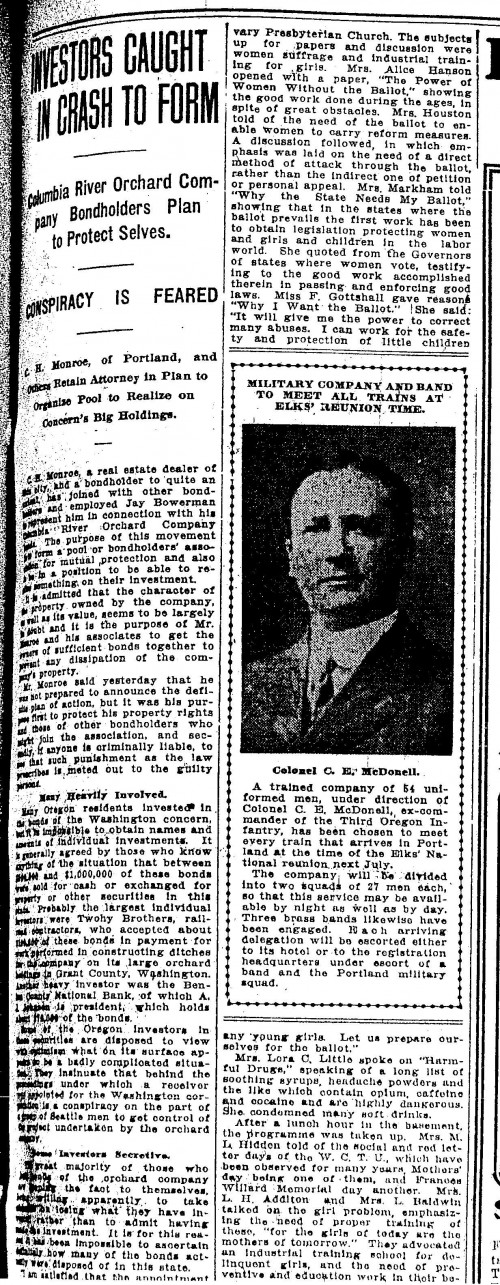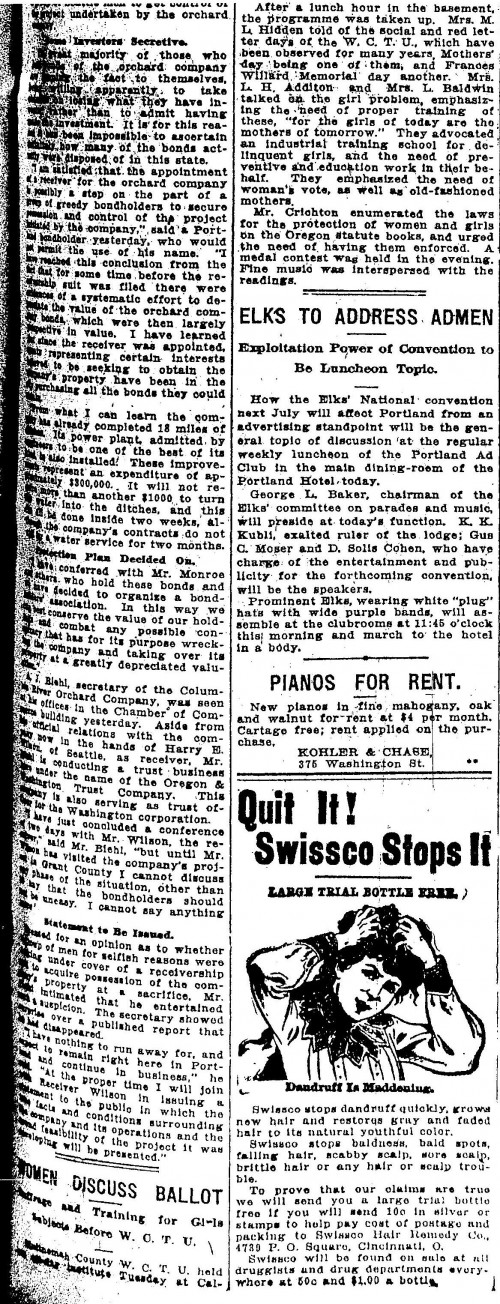"College League Forms," Oregonian, February 21, 1912, 6.

Transcription
COLLEGE LEAGUE FORMS
Mrs. Henry W. Coe Head of Oregon Suffrage Body.
Students Eligible; Mrs. Abigail Scott Duniway Chosen Honorary President for StateThe first chapter of the national College Equal Suffrage league to be formed in the state perfected its organization yesterday with the adoption of a constitution and bylaws and the election of officers. The meeting was held in the committee room of the Multnomah Hotel.
As a recognition of her pioneer work in the cause in the West Mrs. Abigail Scott Duniway was elected honorary president of the new chapter by a unanimous vote, after a speech by Mrs. A. E. Borthwick, in which she paid high tribute to the work done by Mrs. Duniway. Mrs. Henry W. Coe was elected active president of the new organization.
The league was formed tentatively February 12th at a meeting held at the residence of Mrs. R. L. Donald. At that time Miss Charlotte Anita Whitney, National secretary of the league, addressed those assembled and outlined the league’s aims and purposes. The work of organizing a similar chapter of the league among the women students at the University of Oregon was begun last week.
Membership in the league is limited to women graduates of colleges or universities, and to women students who have been at least one year engaged as students at such institutions. This last provision is a departure from the bylaws of the National league, and was adopted for the purpose of making the influence of the league as broad as possible during the coming campaign. The question of admitting men to membership may be taken up later.
The object of the league is to interest college women in a scientific study of the question, to equip them to enter the campaign actively with arguments, both oral and writen[sic]. The Portland chapter will hold weekly meetings hereafter. The meeting day has been set for Tuesday and sessions will be held alternately at the Multnomah Hotel and at the homes of the members. A subscription list, headed by Mrs. L. W. Therkelsen, who contributed $100 at the meeting and offered to give $25 monthly during the campaign, was started yesterday.
Officers elected are:
Honorary president, Mrs. Abigail Scott Duniway; president, Mrs. Henry W. Coe; vice-presidents, Mrs. L. W. Therkelsen, Mrs. Andre Fouilhoux, Dr. Mae Cardwell, Mrs. E. L. Taggert, Mrs. J. B. Kerr; secretary, Mrs E. Wold; treasurer, Mrs. E.T. Taggart; directors. Dr. Marie D. Equi, Mrs. A. A. Lindsley, Mrs. Henry Hunt, Mrs. C. Edward Grelle, Dr Kittie Plummer-Gray.The following committees were appointed: Publicity, Mrs. L. W. Therkelsen, Mrs. F. S. Senn, Dr. Marie V. Madigan, Mrs. Margaret Hoge; finance, Dr. Florence Manion, Mrs. A. E. Borthwick, Miss Emma Buckman, Mrs. Sarah Ehrgott; literature, Mrs. E. T. Taggart, Dr. Katherine Manion, Mrs. N. W. Shaw, Mrs. F. B. Riley; press, Mrs. E. Wold, Mrs. L. B. Trullinger.
1912 February Permalink





